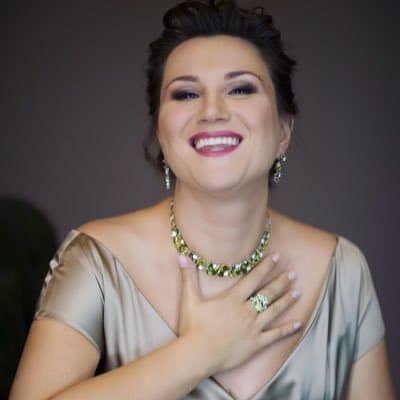It wasn’t Lang Lang who awoke China to western classical music
mainSo who was it? In an essay in the new edition of Standpoint, I trace the beginnings of China’s musical awakening to a conductor called Li Delun, whose performance of Beethoven’s fifth symphony in Mach 1977 announced the end of Mao’s Cultural Revilution. You can read the essay here.
By unhappy coincidence, I learn today of the death, aged 89, of Li Jue, the conductor’s widow. They married in 1948 and are survived by a son and two daughters. These were the true pioneers of China’s awakening. (h/t Rudolph Tang).






Li Delun and Yehudi Menuhin enjoyed a long friendship, and Maestro Li was instrumental in helping the first young Chinese students to leave China and study abroad at the Menuhin School in England and the Menuhin Academy in Gstaad
Thanks for directing our attention to Li Delun who certainly was China’s most popular conductor. There are very interesting recordings with him out there: Tchaikovsky 5, Beethoven 9 etc. However, I would not say that China’s ‘musical awakening’ actually begins with him. ‘His’ orchestra, the Central Philharmonic Orchestra, an organ of China’s ministry of Culture, was founded already in 1956 and used to play regularly Western classical music along the usual propaganda stuff. There is a book including a CD that describes its history from 1956 to 1996 (only in Chinese). On the CD you can hear a mixture of recordings ranging from propaganda stuff (the ‘Yellow-River-things….) to Western classical music (Brahms, Beethoven, Chopin etc.), including some examples of ‘contemporary music’. There is also a recording of the last movement of Beethovens 9th with the chorus singing in Chinese, recorded live in 1959.
We should also not forget that there were several Western orchestras which visited the country long before the Cultural Revolution was over, especially from Soviet Union, but other countries too, for example Ormandy and the Philadelphia Orchestra came to China in 1973.
I am sure, classical music was known in China long before Li Delun. If you want to go back even further, there was an orchestra in Shanghai that played symphony concerts regularly since the 1880s (Shanghai Symphony orchestra), later directed by Mario Paci who did perhaps more than anyone else in bringing Western classical music to China. His orchestra though was made up mostly of Western musicians. The first orchestra that consisted only of Chinese players was founded in 1940 in Chongquin. Its a pity that we have almost no recordings from those times.
^ like! ^
Of course, the Philadelphia Orchestra is now going back to China every year for two- or three-week residencies.
Classical music was indeed ‘known’ – – and loved – – long before Li Delun…..but under Chairman Mao it was forbidden to study it or play it. Music was copied by hand and practised in private.
The ban for classical music, that means for the classical repertoire, started in 1966 and lasted until 1973. Ormandy’s tour was a historic event in many ways. During that time Western classical music was rarely recorded or broadcast (though there are recordings from that time on the CD I mentioned above) But all the years before, music education and performance actually flourished, even under Mao’s regime (education was actually enforced during the regime’s early years.) Modern music however was very much oriented to Soviet-style propaganda music. Lots of teachers from Soviet Union came to occupy influential places in the conservatories. That is the reason why music from that time sounds so ‘familiar’ to Western ears. Chinese classical music on the other hand suffered much more and for a much longer time. Everything had to adapt to the communist music style they heard from Soviet Union. Many things were forbidden, performance history of thousands of years virtually destroyed – all of that is very much known nowadays. Chinese instruments were mostly replaced with Western instruments in performances of the few ‘allowed’ (and terribly ‘remodelled’) Beijing operas and ballets. There was nothing on the air than the same propaganda songs over and over again. While there were many open ears for Beethoven & Co. again after the revolution, many genres of classical Chinese music became definitely unpopular, because they were hardly known and studied, and that remains so even nowadays.
That’s the one thing that always worries me about the flourishing of Western classical music in much of Asia.
China, Korea and Japan all have their own estimable forms of court and art music – what about those? (As you point out, that’s an especially big issue for China, where so much knowledge was lost.)
I sure hope that there are still performers of indigenous Japanese court music around who are as good as the Bach Collegium Japan.
Oman and Abu Dhabi are happy to splash out money for Western-style symphony orchestras. Are they also supporting the practitioners of the Arab world’s very highly developed classical music?
Same for the Malaysian Philharmonic, I guess, though not for much longer …
I’ve read Si’s comments with interest. I was a member of the London Philharmonic Orchestra for many years and to my knowledge we were the first western orchestra to visit China in March 1973 following their cultural revolution. Our conductor was John Pritchard and our soloists were Ida Haendel and Gordon Webb – we performed in Beijing, Shanghai and Canton.
Yes, but was the orchestra known as the London Festival Ordhestra back then? Dvorak 8 and Haydn Trumpet Concerto and Brahms Violin Concerto and Vaughan Williams were on the programme. My mom was present for their Beijing rehearsals and concert!
Was Lang Lang introducing Western music to China EVER a question? A statement as odd as that sounds more like an absurd attempt to draw attention than anything else.
No, that wasn’t a question for the likes of us, but I’m sure there are lots of people around who don’t or didn’t know any different.
The people who read a magazine like Standpoint aren’t the same folks who follow and comment on Slipped Disc.
My former composition teacher was teaching Western music in China as early as the mid-70’s. Why would anyone think this piano player started anything?
It should be noted that classical music was very popular in the coastal cities for decades before the communist ban. Pianos (along with such things as sunglasses) were banned during the Cultural Revolution as bourgoise Western decadence and many handbuilt and factory-made pianos were destroyed. In post-Mao China, classical music appreciation runs deep. My students in the Chinese universities in the late 1980s seemed to know more about classical music than the Western pop music of the day. Beethoven’s 6th was a huge favorite, and the Tiananmen Square democracy activist Shen Tong even discusses the popularity of that symphony in his book.
Some Chinese writers have speculated that Western classical music is so popular among the educated Chinese because China historically has not had classical music composers of its own. It has “traditional music,” much of which is very wonderful, but not a legacy of what would be considered classical compositions written by a single composer. Of course, there was the Communist-approved Chen Gang violin concerto “The Butterfly Lovers” as well as “Yellow River” during the Mao era, and there are contemporary composers such as Tan Dun and many lesser-known, so that is changing.
All very interesting, I’ve learned a lot from both the post and the comments. It may also be worthwhile to take a macro/historical view and ask whether the same forces that accompanied and contributed to the embrace of classical music in the US in the late 19th and early 20th centuries — and, according to some cultural historians, drove its separation from popular culture — namely, industrialization and urbanization, and the resulting need for class distinctions, might be at play in the rise of classical music in China. After all, no country is urbanizing and industrializing faster these days. Just a thought.
The girl in the photo is Li Lu, their first daughter. She lives in Beijing. In 2012 the Ministry of Culture of China presented the first national conductor’s competition named after Li Delun, a long overdue commemoration to a man who has contributed so much but remembered so little.
Rosy, it was not the London Festival Orchestra but was most definitely the London Philharmonic Orchestra – the year we’re talking about is 1973 and I’d been a member since 1963. The programme you mention is correct, with Ida Haendel playing the Brahms – Dvorak 8 sounds right for John Pritchard as does the Haydn concerto for Gordon Webb, however I don’t recall the VW and wonder what it might’ve been…Tallis Fantasia, Wasps Overture, Greensleeves, who knows? – I’ll have the programme somewhere.